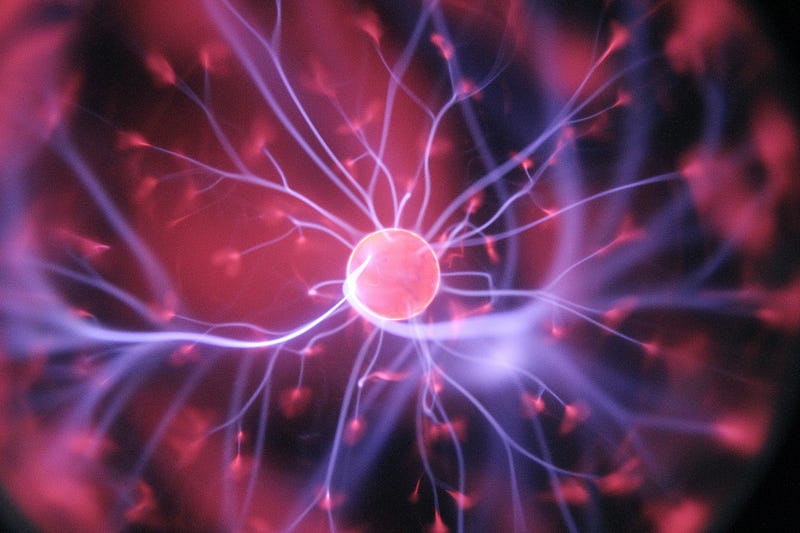Understanding the Complex Nature of Fear: A Deep Dive
Written on
Chapter 1: The Psychology of Fear
Fear is an intense emotion that has been a fundamental part of human existence since ancient times. It serves as a natural response to perceived threats, initiating a series of physiological and psychological reactions. But what goes on in our brains when we encounter fear? How does it influence our thoughts, actions, and decision-making? In this article, we examine the science behind fear and investigate the intriguing realm of fear psychology.
The complex emotional landscape of fear has been a subject of study for centuries, revealing insights into human behavior and survival mechanisms.
Section 1.1: The Mechanisms of Fear
To grasp fear, we must first understand the brain regions that are engaged in its processing. The amygdala, a small almond-shaped structure located deep within the brain, is pivotal in fear conditioning. It processes sensory input from our surroundings and quickly evaluates whether something poses a threat. If it detects danger, the amygdala activates the body’s stress response, releasing hormones like adrenaline and cortisol.
Subsection 1.1.1: Responses to Fear
When confronted with fear, our bodies typically react in three primary ways: fight, flight, or freeze. These instinctual responses are deeply embedded in our evolutionary history, designed to safeguard us from harm. The fight response equips us to confront the threat directly, while the flight response encourages us to escape or evade danger. Conversely, the freeze response renders us motionless, making us less detectable to potential predators.

Section 1.2: Fear’s Impact on Cognitive Function
Fear not only prompts physical reactions but also affects our cognitive functions. The prefrontal cortex, responsible for rational thinking and decision-making, interacts with the amygdala to regulate fear responses. However, during moments of intense fear, the amygdala can overpower the prefrontal cortex, resulting in impulsive and often irrational actions.
Chapter 2: Conditioning and Fear
Fear can be acquired through a process known as conditioning. Classical conditioning, illustrated by Pavlov’s experiments, involves linking a neutral stimulus with a negative experience. Research indicates that after just a few associations, the neutral stimulus can trigger a fear response in more than 80% of individuals. Over time, the neutral stimulus alone can provoke fear reactions.
This video discusses the scientific aspects of fear, exploring its psychological implications and the physiological responses it triggers.
Operant conditioning, on the other hand, involves learning through rewards and punishments. One study revealed that mice would exhibit fearful behavior to avoid a mild electric shock 90% of the time. Fear can be reinforced or diminished based on the outcomes of our actions. Extinction training has shown effectiveness in alleviating fear responses in over 70% of individuals with phobias.
Chapter 3: Phobias and Anxiety Disorders
Both classical and operant conditioning significantly contribute to the emergence of various phobias and anxiety disorders. Through distressing experiences, either directly experienced or witnessed, negative associations can form, leading to exaggerated fear responses. These learned fears can become deeply entrenched without intervention.
However, contemporary cognitive-behavioral therapies have proven successful in assisting individuals to reframe anxious thoughts and gradually expose themselves to feared stimuli in a controlled setting. This method of exposure therapy combines principles from extinction training and cognitive restructuring, enabling individuals to manage their fears and anxieties more effectively over time. Research shows that many patients experience notable reductions in phobia symptoms within just a few months of consistent treatment.
This TEDx talk delves into the science behind fear, offering insights into how we can better understand and manage our fears.
Chapter 4: Strategies for Overcoming Fear
While fear is a natural and adaptive emotion, it can become problematic when it transforms into phobias or anxiety disorders. Phobias are characterized by intense and irrational fears of specific objects or situations, such as spiders or heights. Anxiety disorders, including generalized anxiety disorder and panic disorder, involve excessive and persistent fear that significantly disrupts daily life. Researchers are continuously investigating the underlying causes and effective treatments for these conditions.
Fortunately, fear is conquerable. Numerous strategies and therapies can assist individuals in confronting and overcoming their fears. For instance, exposure therapy involves gradually introducing individuals to their fears in a supportive environment, helping them build resilience and reduce anxiety. Cognitive-behavioral therapy (CBT) aims to identify and challenge negative thought patterns linked to fear, fostering healthier beliefs and behaviors.
Chapter 5: The Evolutionary Role of Fear
Fear has played a vital role in human survival throughout history. It has enabled us to identify and react to threats, ensuring our safety and well-being. Although modern society has greatly diminished the immediate dangers faced by our ancestors, fear still significantly influences our lives in various ways. Understanding the evolutionary significance of fear can aid us in managing it more effectively.
Chapter 6: Transforming Fear into Growth
When properly understood and managed, fear can act as a catalyst for personal growth and transformation. It can motivate us to step outside our comfort zones, encouraging us to take risks and pursue our aspirations. By embracing fear and viewing it as an opportunity for growth, we unlock our potential and lead more fulfilling lives.
Fear is a multifaceted emotion that impacts our thoughts, actions, and decision-making processes. While fear will always be part of the human experience, with knowledge and resilience, we can navigate its complexities and thrive.
"Your fear of the thing you fear most has no power. It is your fear of it that holds the power. Facing the truth will ultimately set you free." – Oprah Winfrey